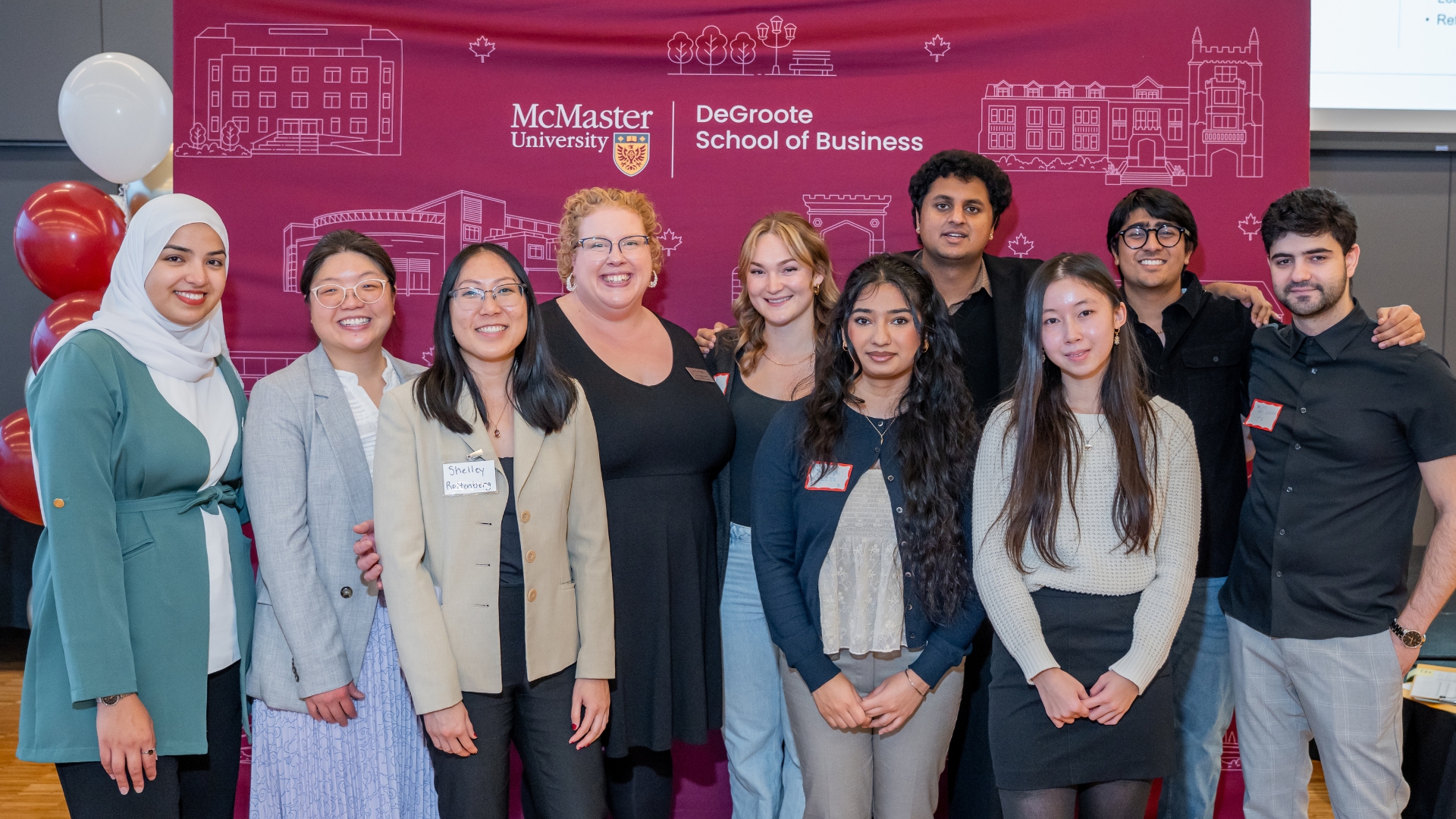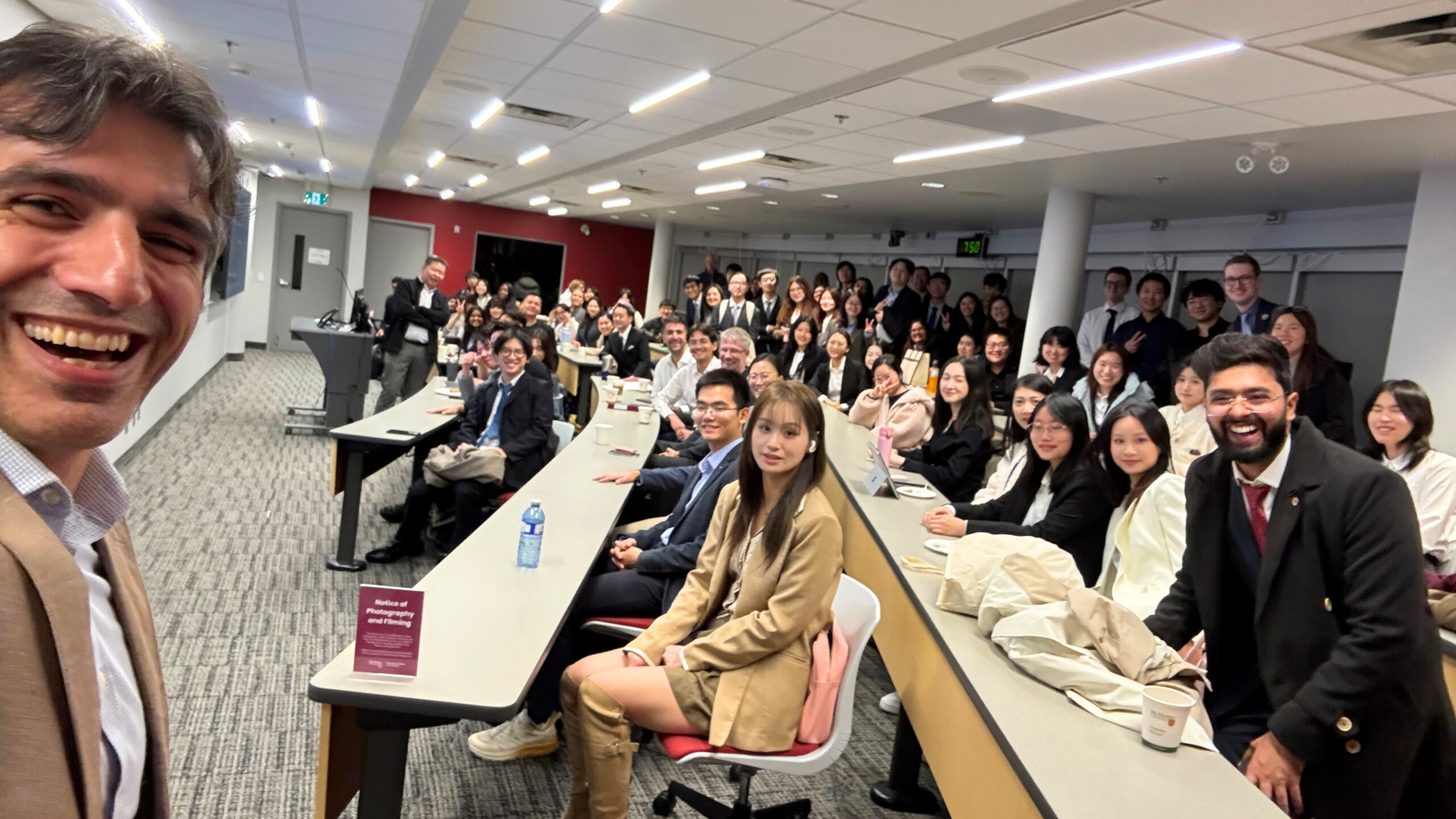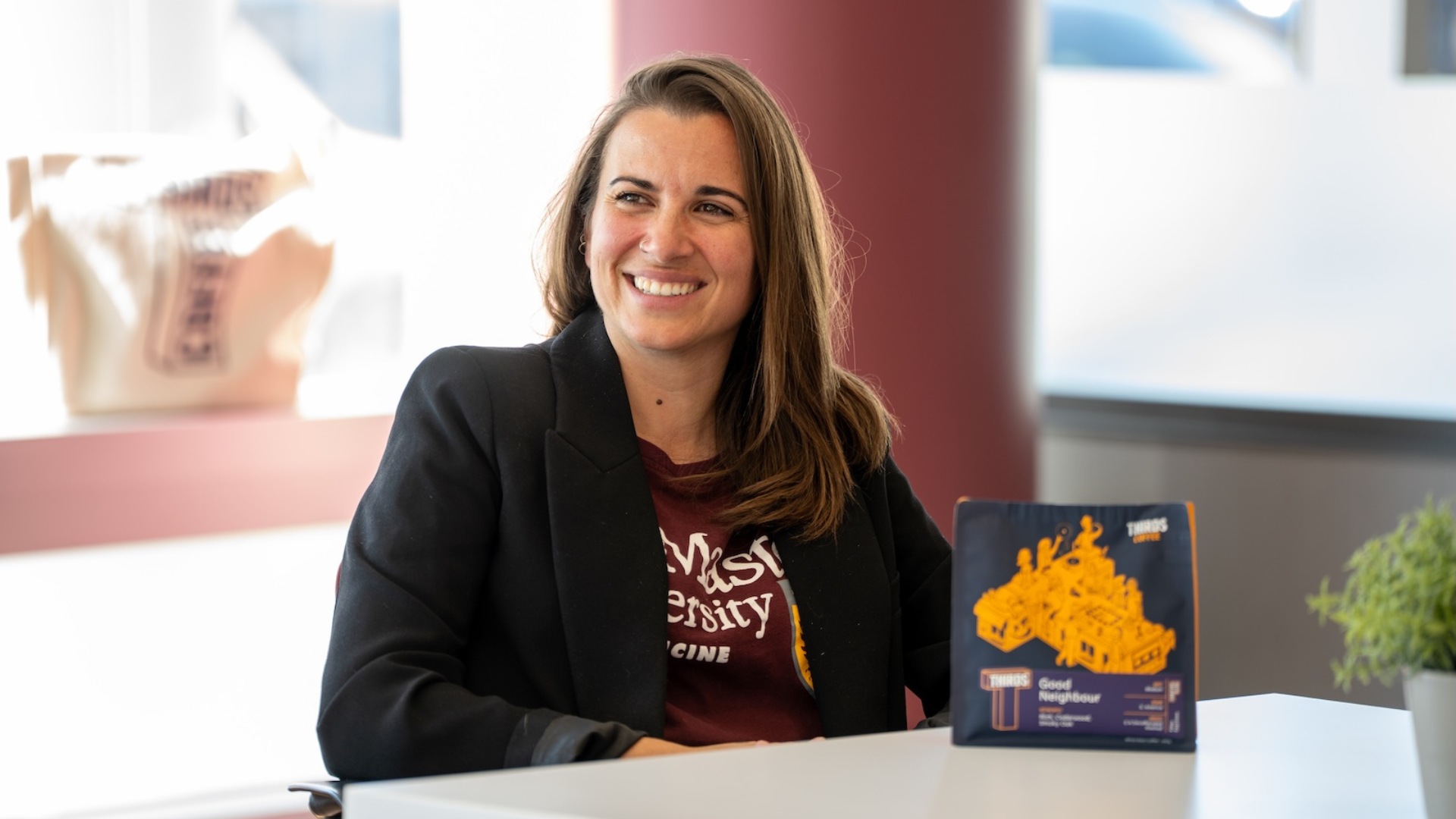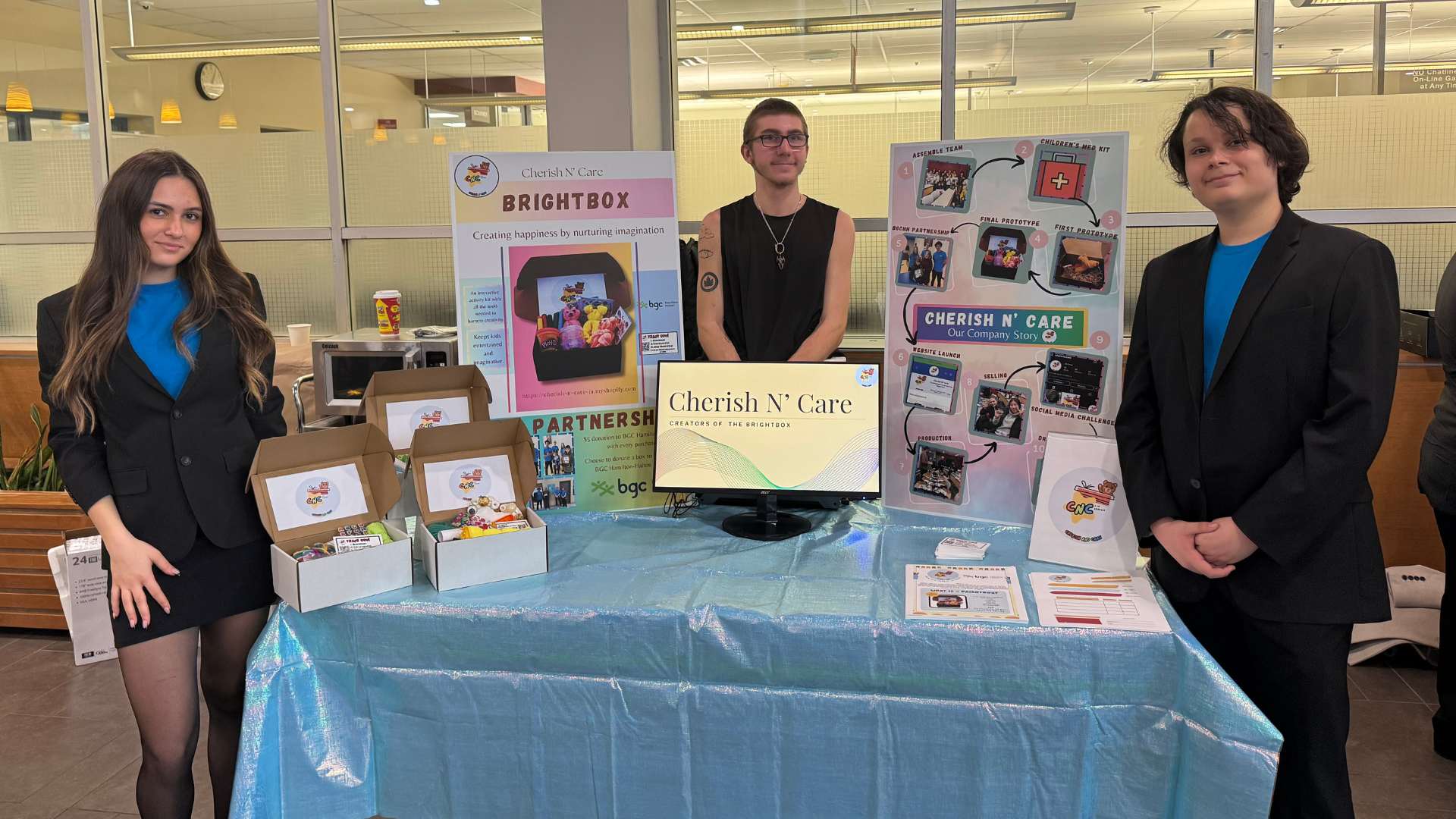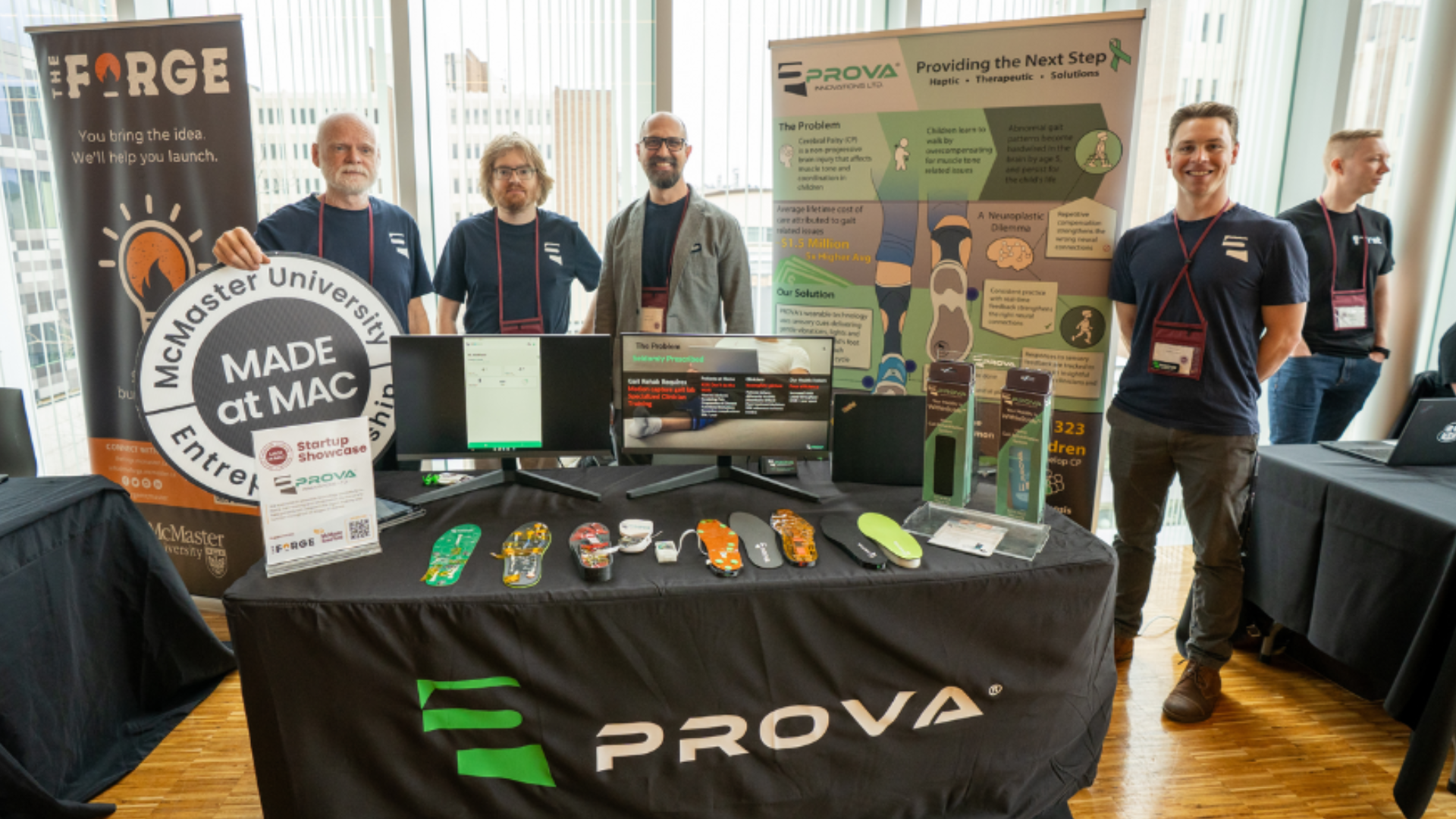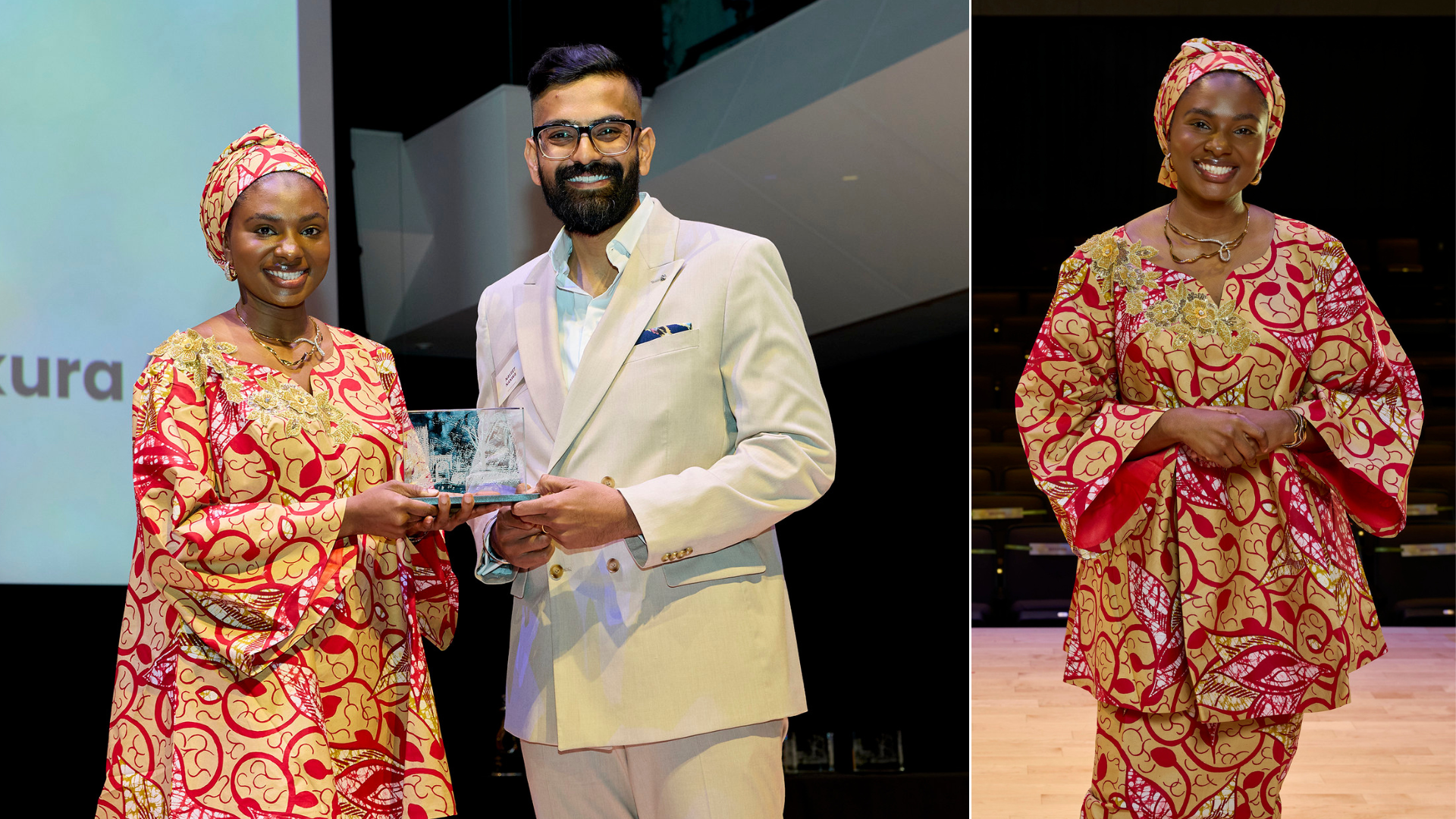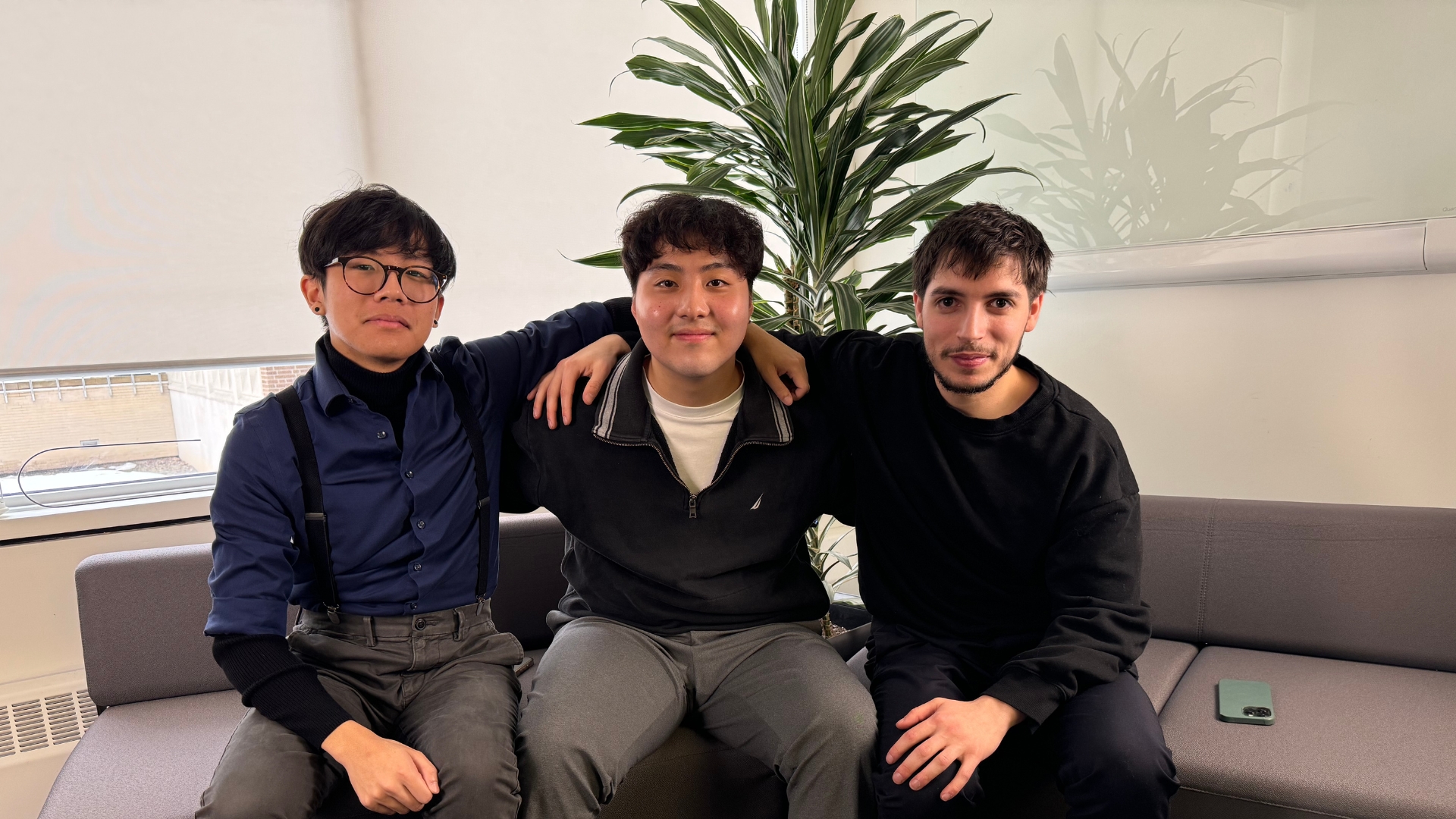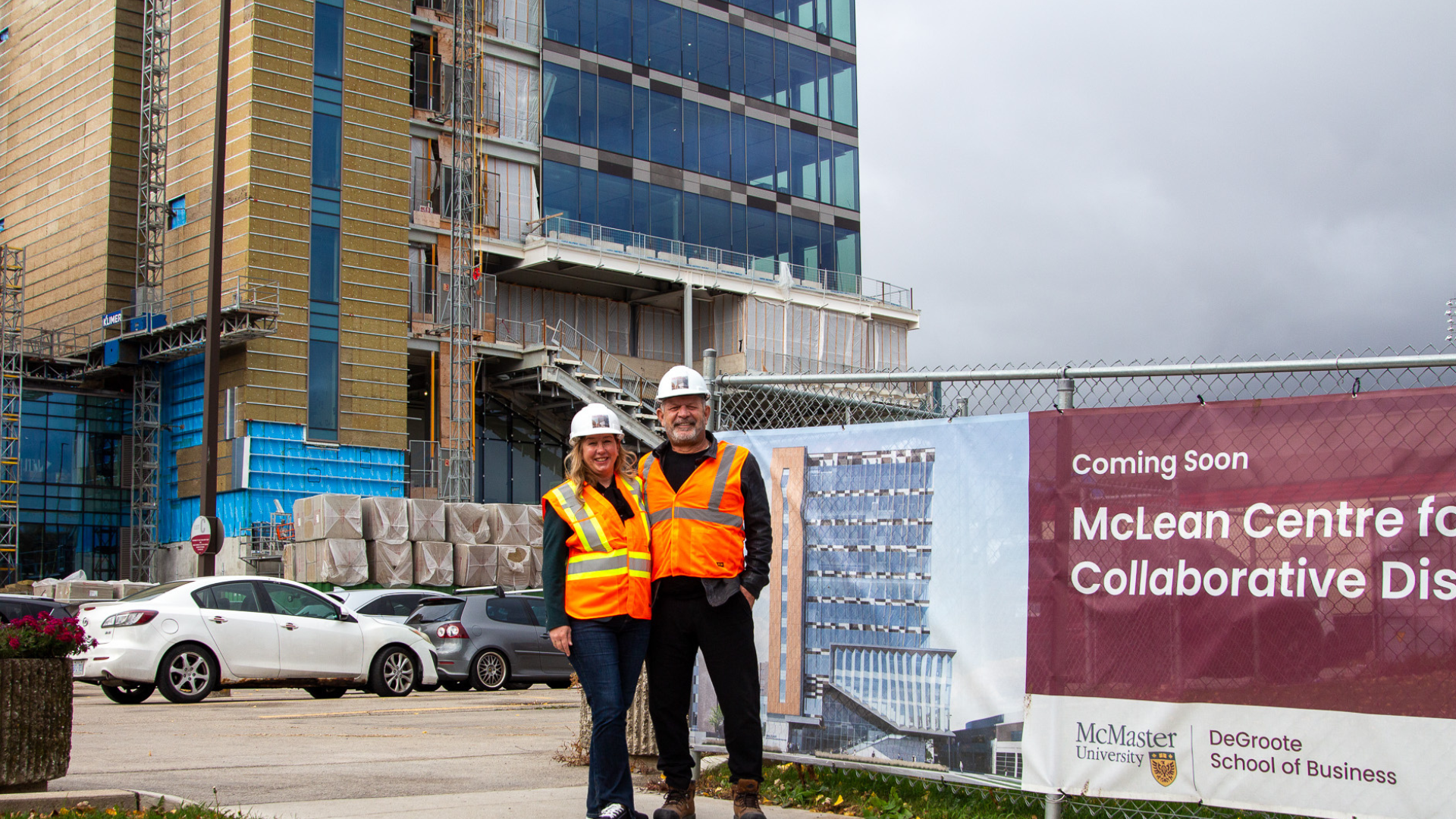RESEARCH STAFF STRATEGIC PLAN | RESEARCH AND SCHOLARSHIP
Society & Impact Luncheon Explores the Power of Intrapreneurship as a Catalyst for Social Change
April 26, 2024 ·
Contributed by: Office of the Vice-President, Research
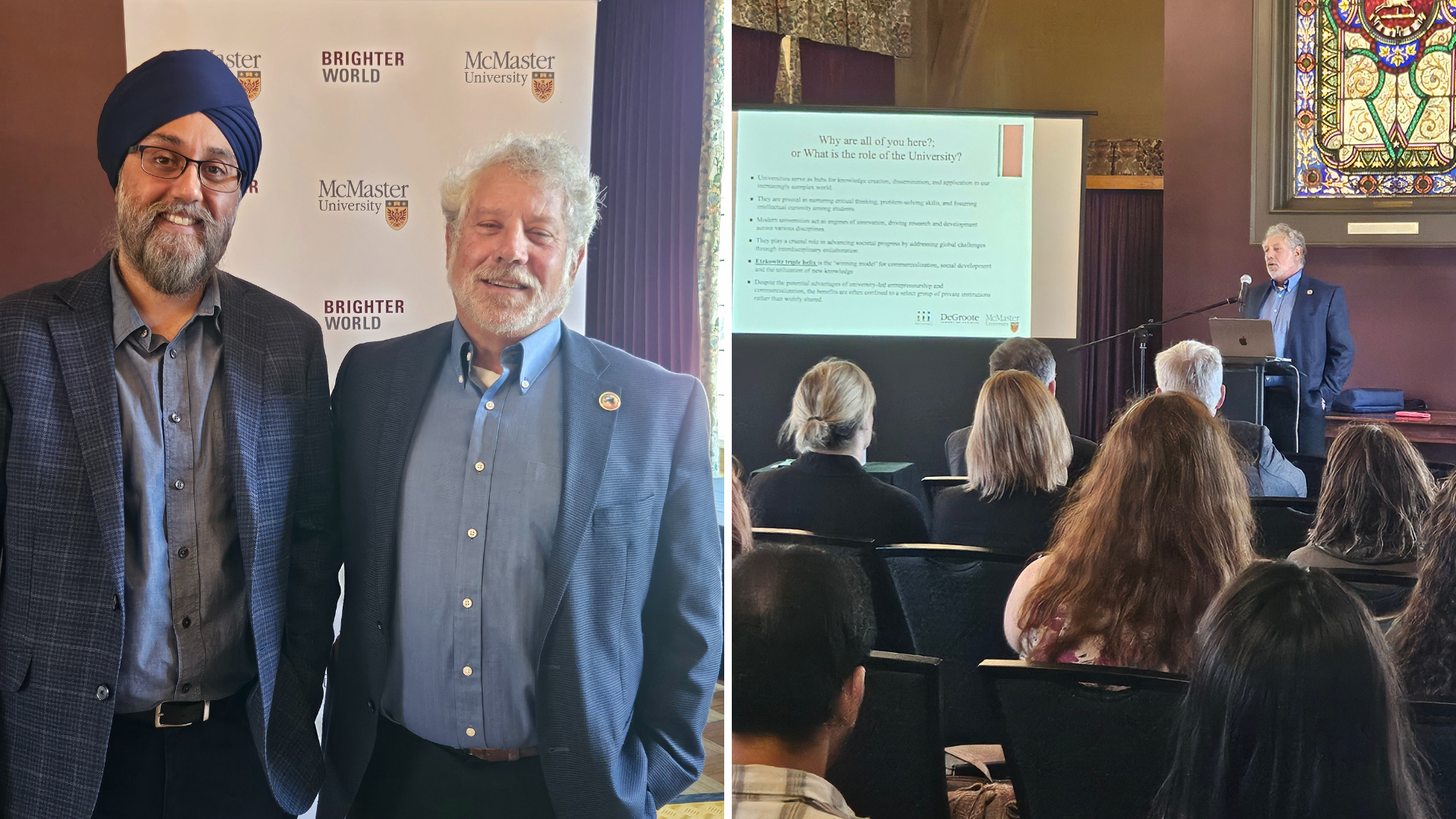
DeGroote School of Business Professor, Benson Honig, shared his research on digital social intrapreneurship as part of McMaster’s Society & Impact Luncheon series.
Intrapreneurship refers to the practice of pursuing entrepreneurial endeavors while working within an established organization. Universities and researchers from across the disciplines are often intrapreneurial leaders, explains Honig, who also leads McMaster’s Centre for Research on Community Oriented Entrepreneurship (CRCE).
“Intrapreneurship is demonstrated when researchers translate their work into products, services and initiatives that benefit the lives of individuals and communities,” he says.
“At the CRCE, we integrate evidence-based research, entrepreneurship, digitization and social responsibility to promote and advance intrapreneurship within the University context and beyond.”
Honig’s research focuses on finding new ways to support marginalized and minority entrepreneurs around the globe. His team has collaborated with communities across Africa, Europe and South America to provide entrepreneurial training and resources that help underprivileged populations launch and advance their businesses.
In 2023, Honig took his virtual incubator to Kenya to encourage new business opportunities for the region’s multigenerational refugees and to promote cross-global engagement using enhanced digital techniques.
Sukhvinder Obhi, McMaster’s Associate Vice-President, Research (Society & Impact), says Benson’s work is a prime example of how academic research can spark social change on a global scale.
“Benson is a heavyweight researcher by all the traditional metrics in academia, but he is also going above and beyond to translate his work into solutions that transform lives and support the health, well-being and livelihood of the most vulnerable among us,” he says.
Honig believes academic institutions like McMaster can be powerful agents of social change, through supporting research mobilization and helping researchers translate their work to tackle real-world issues.
“It was a pleasure to share my own work in this space and discuss how we can work on an institutional and community level to turn research into impact,” he says.
Honig’s lecture was the second installment in the newly created Society & Impact Luncheon series, initiated by Obhi, who says there are three main aims of the series.
“This series is designed to showcase the incredible work that scholars are doing to create responsible and ethical change in society; raise institutional levels of societal impact consciousness; and bring people together to explore ways in which we can leverage our knowledge capital for the benefit of local and global communities,” he says.
The Society & Impact Luncheon series will resume in the Fall. Visit research.mcmaster.ca and McMaster Research on LinkedIn to learn more.
This article originally appeared on the McMaster Research & Innovation website.

